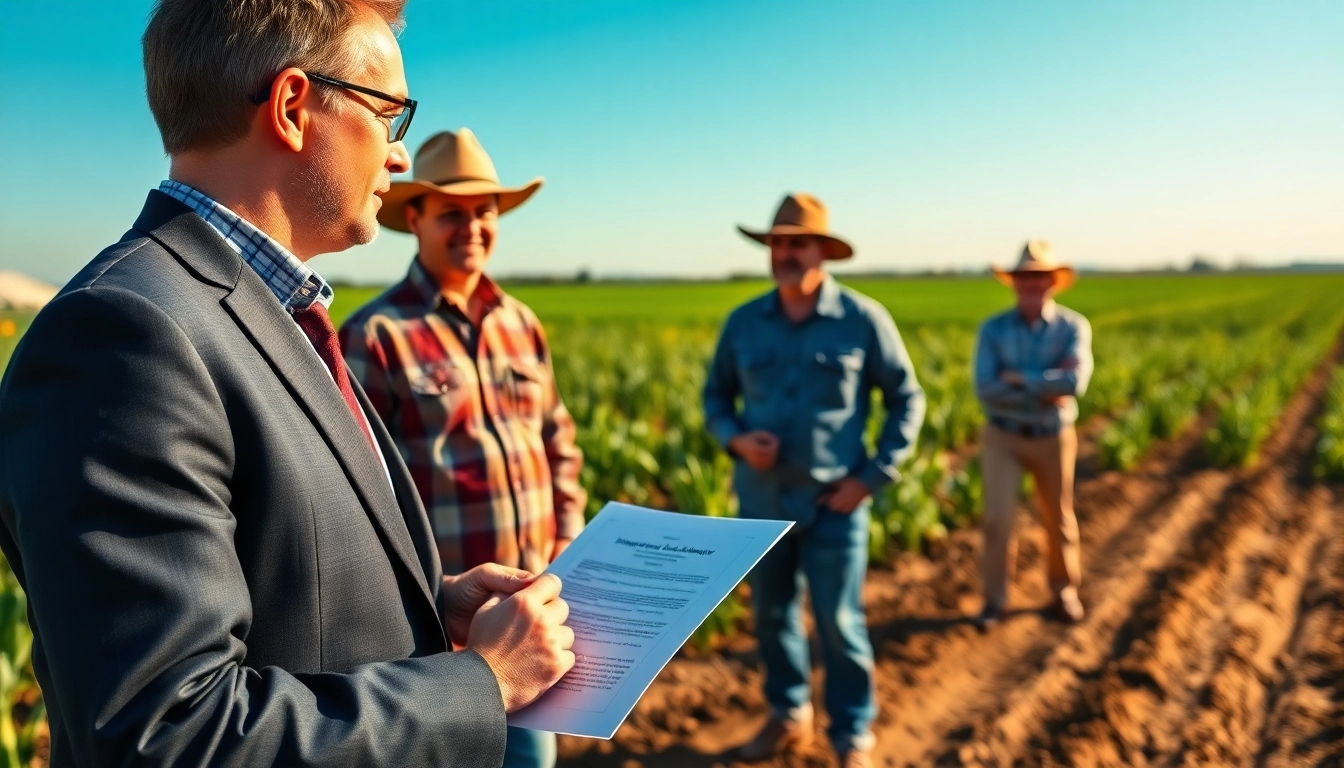Understanding the Role of an Agriculture Lawyer
Agriculture is one of the most vital sectors of the economy, providing food and raw materials essential for survival. However, this complex industry is not without its legal challenges. An agriculture lawyer plays a crucial role in navigating these intricacies, ensuring that farmers and agribusinesses operate within the law while protecting their rights. This article delves deep into the responsibilities, common legal issues, and future trends surrounding agricultural law.
What is an Agriculture Lawyer?
An agriculture lawyer specializes in legal matters pertaining to the agricultural sector. This includes a myriad of issues related to farming, food production, land use, and regulatory compliance. These lawyers provide legal guidance to individuals and businesses involved in farming, agribusiness, and agriculture-related activities. Their expertise covers a wide range of legal areas, including contracts, labor laws, environmental issues, and more.
Key Responsibilities in Agricultural Law
Agriculture lawyers are tasked with various responsibilities that ensure their clients’ interests are protected. Some key responsibilities include:
- Contract Law: Drafting, reviewing, and negotiating contracts related to land leases, equipment purchases, and crop sales.
- Regulatory Compliance: Ensuring that clients adhere to local, state, and federal regulations regarding agriculture, which may include safety standards and environmental protections.
- Dispute Resolution: Representing clients in disputes related to farming operations, land use, and various other agricultural issues.
- Advisory Services: Providing legal advice on business operations, risk management, and compliance with agricultural laws.
The Importance of Legal Expertise in Agriculture
Legal issues in agriculture can arise from various areas, including environmental regulations, agricultural contracts, and labor laws. Having an agriculture lawyer is essential for farmers to mitigate risks and protect their investments. The right legal expertise can help navigate complex regulations, avoid costly disputes, and enable agricultural businesses to thrive.
Common Legal Issues Faced by Farmers
Despite the critical role agriculture plays in society, farmers face numerous legal challenges. Understanding these challenges is key to addressing them effectively.
Understanding Agricultural Contracts
Agricultural contracts are integral to agricultural operations. They govern various relationships including those between farmers and suppliers, buyers, and even employees. Common contracts include production agreements, land leases, and sales contracts. Farmers must ensure these contracts are clear and enforceable to safeguard their business interests. An agriculture lawyer can assist in drafting these agreements to avoid ambiguities that may lead to disputes.
Navigating Environmental Regulations
Environmentally related regulations have a significant impact on agricultural practices. Farmers must comply with laws concerning pesticide use, waste management, and conservation measures. Non-compliance can lead to fines, litigation, and potential suspension of farming activities. An agriculture lawyer can help interpret these regulations and ensure that farmers adhere to them, thus avoiding costly penalties.
Water Rights and Land Use Issues
Water rights are crucial for agricultural success, especially in regions where water scarcity is a concern. Legal disputes over water rights can arise between neighboring farms or between agricultural use and urban development. Furthermore, land use regulations can restrict what activities can occur on a given piece of land. Agriculture lawyers are instrumental in navigating these complex issues, representing farmers in negotiations and litigations over water and land use.
How an Agriculture Lawyer Can Assist You
Employing the expertise of an agriculture lawyer can profoundly benefit farmers and agribusiness owners. Here are ways they can assist you:
Legal Representation in Disputes
Whether facing a lawsuit from a neighbor or engaging in contractual disputes, agriculture lawyers provide essential representation. They leverage their knowledge of both agriculture and law to advocate effectively for their clients’ rights in court or during negotiations. This can ultimately save farmers substantial amounts of money and secure favorable outcomes in disputes.
Advising on Regulatory Compliance
Compliance with agricultural regulations is not just important; it is mandatory. An agriculture lawyer can help identify applicable regulations and ensure that farmers understand their obligations. This proactive approach minimizes the risk of regulatory violations and enhances the farm’s overall operational efficiency.
Assistance with Business Formation and Operations
Starting a farm or an agribusiness involves significant legal considerations. An agriculture lawyer can assist in choosing the right business structure (e.g., sole proprietorship, partnership, LLC) and help set up the necessary documentation. Additionally, they can provide ongoing legal support as the business evolves, ensuring that it remains compliant with ever-changing laws.
Finding the Right Agriculture Lawyer
Choosing the right agriculture lawyer is crucial for ensuring that a farm or agribusiness is legally protected. Here are some factors to consider.
Criteria for Selecting a Competent Lawyer
When searching for an agriculture lawyer, consider their experience in agricultural law, understanding of agricultural issues, and reputation within the community. It’s also vital to look for someone who communicates clearly and is accessible, as open communication is essential for a successful attorney-client relationship.
Questions to Ask Potential Attorneys
Before hiring an agriculture lawyer, prospective clients should ask several key questions, such as:
- What is your experience dealing with agricultural law specifically?
- Can you provide examples of previous cases similar to mine?
- How do you charge for your services, and what can I expect in terms of fees?
Understanding Legal Fees and Costs
Legal fees can vary widely based on the complexity of the case, the lawyer’s experience, and geographic location. It’s essential to discuss fees upfront to understand potential costs and avoid surprises. Some lawyers charge hourly rates while others may work on a retainer or flat fee basis. Transparency about costs should be a priority during initial consultations.
The Future of Agriculture Law
The landscape of agriculture law is continuously evolving due to technological advancements and changing societal expectations. Understanding these trends can prepare farmers for the challenges ahead.
Trends Impacting Agricultural Legal Practices
One of the most significant trends impacting agriculture law is the increasing scrutiny of environmental practices. As climate change becomes a growing concern, regulations have tightened around farming practices, particularly in areas like the use of water and pesticides. This evolution necessitates that farmers stay informed and adaptable to remain compliant.
Technological Advances in Agriculture and Law
Technology is revolutionizing agriculture, from precision farming techniques to blockchain in supply chain transparency. These innovations also bring new legal considerations. For instance, data privacy issues concerning technological tools require legal guidelines, making it critical for agriculture lawyers to stay abreast of these advancements to provide relevant legal advice.
The Growing Importance of Sustainability in Legal Matters
Sustainability is becoming a central theme in agriculture law. As consumers increasingly demand sustainable practices, farmers must adapt accordingly. Legal frameworks are likely to evolve to support sustainable farming, impacting everything from subsidies to land use regulations. An agriculture lawyer will play a significant role in guiding farmers through these changes, helping them align with sustainability laws while also remaining profitable.



